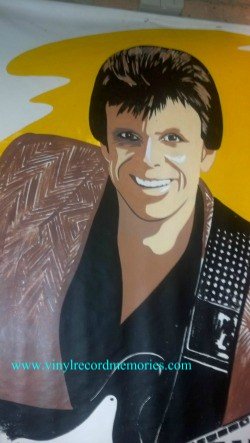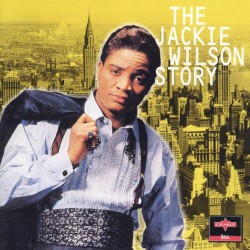The Platters Vinyl Record Memories.
"Only You" & "The Great Pretender."
Classic Original Hits Of The Fifties.
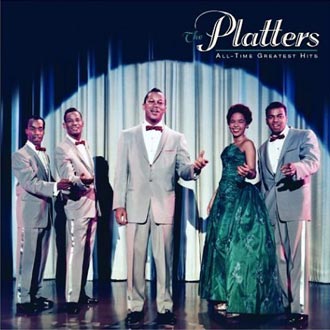
With original classics like "Only You" and "The Great Pretender," The Platters vinyl record memories return to the '50s with one of the preeminent vocal groups throughout the second half of the decade.
The group formed in 1953 when a recently discharged young Army veteran named Herb Reed recruited Cornell Gunther, Joe Jefferson, and Alex Hodge to form a vocal quartet that would eventually be called The Platters. These four men were in fact, the “original” Platters.
The Los Angeles based group made a few records for the Federal label, a subsidiary of Cincinnati's King Records. In 1954, after a failed attempt to record "Only You" (and You Alone) with Federal Records, Jefferson, Gunther and Hodge left the group. They were immediately replaced by Tony Williams, David Lynch, and Paul Robi.
That same year, Zola Taylor joined becoming the first female vocalist to break through the gender divide as part of an all-male vocal group.
This second lineup of the newly formed quintet is often mistakenly referred to as the “original Platters,” although this is the group that was actually responsible for all of The Platters hit records going forward.
The Platters Vinyl Record Memories.
The Perfect Harmonic Combination Begins.
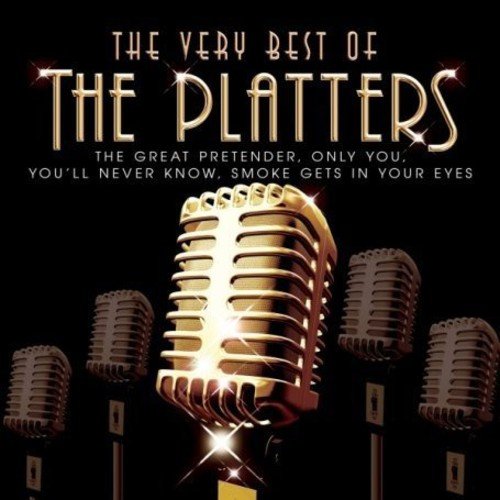
What changed The Platters fortunes boils down to one man: their mentor, manager, producer, songwriter, and vocal coach, Buck Ram.
By 1954, Ram was already running a talent agency in Los Angeles, writing and arranging for publisher Mills Music, and working with his protégés, the Penguins. Who can forget their classic ultra-romantic ballad, Earth Angel. The Platters seemed like a good addition to his stable.
Under his guidance Ram took a standard doo wop vocal group and turned them into stars -- one of the most enduring and lucrative groups of all time. After adjusting the lineup he settled on lead Tony Williams, second tenor David Lynch, baritone Paul Robi, and bass Herb Reed, finally adding contralto Taylor in 1955 to complete their perfect harmonic combination. Ram believed this group would have more elegance and sophistication than the average R&B act. He was right...
Buck Ram managed to sign The Platters to a major deal with Mercury Records and it was then the trendsetting group re-recorded Only You (and You Alone) on April 26, 1955, launching them onto the national stage. Zola Taylor turned seventeen one month prior to the release of "Only You." The Platters would churn out hit after hit during the 1950s, bridging the gap between more traditional vocal-group styles and the popular R&B grooves of the early '50s.
Watch this video of the original clip from the 1956 movie "Rock Around The Clock" and then continue below to read how the song was reportedly released in error.
New Sound Becomes Prime Time Hit.
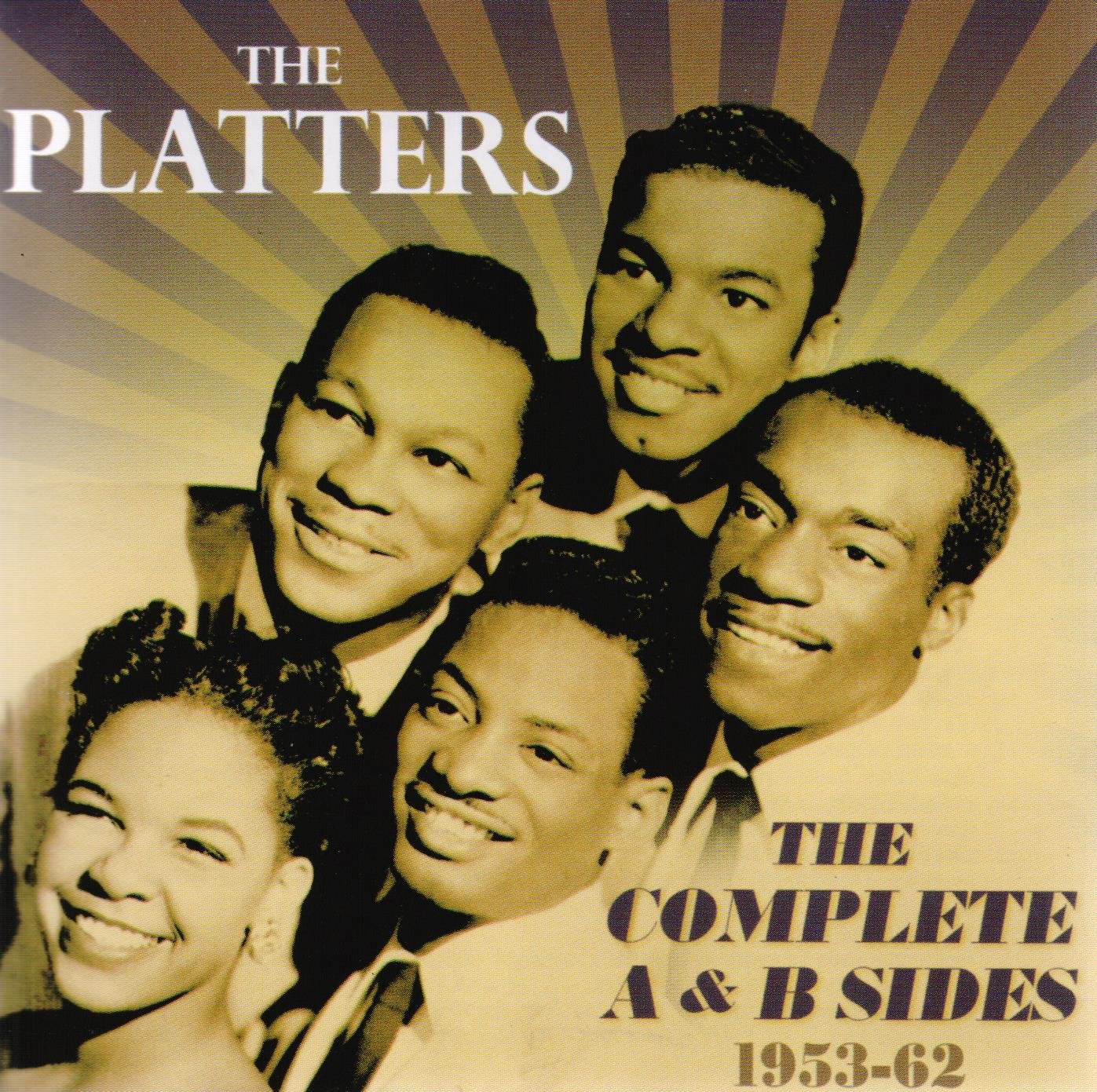
The Platters initial release of "Only You" was released to the public in error. A popular DJ of the time named Alan Freed accidentally played the single on air during a "prime time" that was traditionally reserved for only white artists.
The romantic ballad, based on the then groundbreaking Tin Pan Alley sound,
became an instant hit with the public and would eventually reach number
five on the pop charts, pioneering the "new sound" of rock-n-roll as we
know it today.
The Tin Pan Alley Sound.
The phrase tin pan referred to an area in New York that housed many songwriters and the sound of pianos furiously pounded by the so-called song pluggers, who demonstrated tunes to publishers.
Tin Pan Alley comprised the commercial music of songwriters of ballads, dance music, and vaudeville, and its name eventually became synonymous with American popular music in general.
The Great Pretender.
The Platters First #1 Hit.
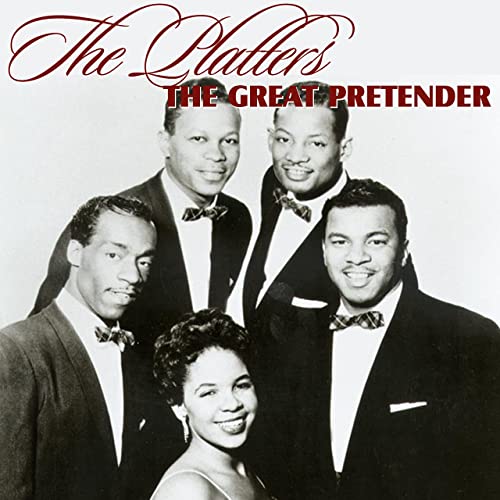
When R&B and doo wop began to crossover into the pop charts, The Platters were perfectly positioned to be the smooth, classy alternative to the street-corner sounds of the early doo wop groups.
The Platters embraced the opportunity and became a finely honed quintet of expert balladeers whose vocal harmonies were as delightful as their material was refined. That carefully crafted polish led to pop crossover status on an epic scale, and throughout the second half of the '50s, racked up a number of huge crossover hits, none better than their second Top Ten hit, "The Great Pretender." The song describes a man who deals with his heartbreak by denying it - he's mastered the art of smiling through the pain.
The Platters had two things going for them that their competitors couldn't claim: the stratospheric lead tenor of Tony Williams and the writing and managerial skills of Buck Ram.
Instead of sticking with the all-male lineup they'd started out with, the group brought in cute-as-a-button teenager Zola Taylor, further setting them apart from the great majority of their contemporaries.
"The Great Pretender" exceeded the success of their debut and became the Platters' first national #1 hit, topping the charts for 11 weeks, and were also the first group in the newly defined "Rock-n-Roll" Era to have a Top Ten album in America.
The Platters vinyl record memories recalls a time when Buck Ram, pressed by the record label for a follow up to the success of "Only You (And You Alone)," said that he wrote the song in about 20 minutes in the bathroom of the Flamingo Hotel.
The group was inducted into the Rock and Roll Hall of Fame in 1990 and the Vocal Group Hall of Fame in its inaugural year of 1998. "Only You" (and You Alone) and "The Great Pretender" were named songs of the century and entered in the Grammy® Hall of Fame in 1999 and 2002 respectively.
The "Platters" were the only act to have three songs included on the American Graffiti soundtrack that kicked-off an oldies revival in the early to mid 1970s: "Only You (and You Alone)," "The Great Pretender," and "Smoke Gets in Your Eyes."
The Platters Herb Reed Wins Trademark War.
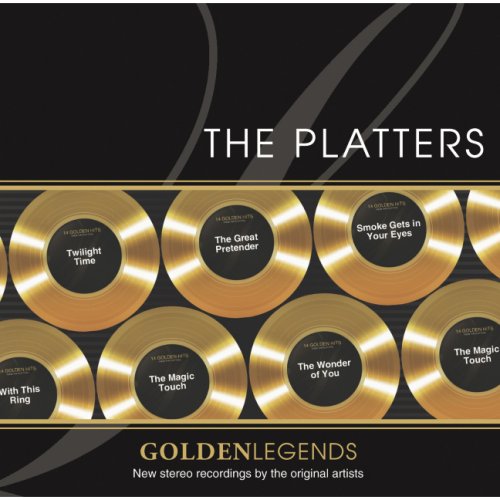
One year before his death on June 4, 2012, Reed felt the thrill of a long overdue victory after a federal judge ruled he had superior rights above all others to the group’s legendary name.
This ruling, in
principle, was subsequently validated by three other federal judges as
well as two, three-judge panels in the 2nd and 9th US Circuit Courts of
Appeal.
Litigation involving The Platters trademark has been
ongoing for more than half a century, due to the proliferation of fake
“Platters” groups and individuals falsely claiming to be “Platters.”
Reed
and his company, Herb Reed Enterprises, LLC (“HRE”), initiated a series
of lawsuits, which reinforced his sole stake in The Platters name,
finding his rights superior to all others.
Determination by Mr. Reed
resulted in the right choice by the courts. It's nice he was able to see
it all happen prior to his death. Good for you Herb Reed.
The Platters - The Final Curtain Call.
Where Are They Now?
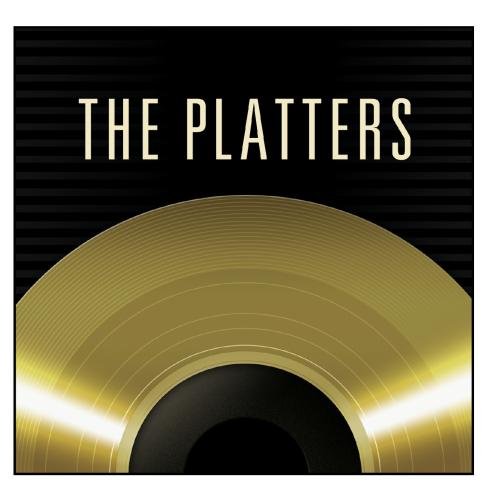
- Buck Ram - The Platters manager, producer and song writer, died in 1991, aged 83, in Las Vegas, Nevada.
- Samuel E. "Tony" Williams - Lead singer of the Platters from 1953 to 1960. Williams, suffering from diabetes and emphysema died in his sleep in New York on August 14, 1992. He was 64.
- David Lynch - Second Tenor - The man with the debonair look and smooth dance moves, died of cancer at age 51 on January 2, 1981 in Long beach, California.
- Paul Robi - Baritone - Died of cancer on February 1, 1989 in Los Angeles, California, USA. He was 57.
- Zola Taylor - Contralto - Died on April 30, 2007 in Riverside, CA from pneumonia. She was 69.
- Herb Reed - Bass - As the original founding member Reed performed as many as 200 concerts per year until 2012, when he stopped due to declining health. He died from complications from several ailments, including heart disease, at a hospice in Boston on June 4, 2012, aged 83.
Herb Reed was the only member of the vocal group to appear on all 400 of their recordings and toured with one of the numerous incarnations of the band until 2011.
As the last surviving original member of The Platters, Reed waged a long, but successful, federal court battle over the rights to the name, The Platters. The courts ruled that Reed was the only heir to the group's name.
The Platters vinyl record memories lives on today in the hearts and minds of all who were fortunate enough to have grown up during the time of this wonderful music.
Ever thought of having your own website? I built Vinyl Record Memories "from scratch" with SoloBuildIt! Click below to find out more....
Follow all your favorite Doo Wop Classics.
Remembering the Golden Oldies.
Who does the best cover of your oldies favorites?


